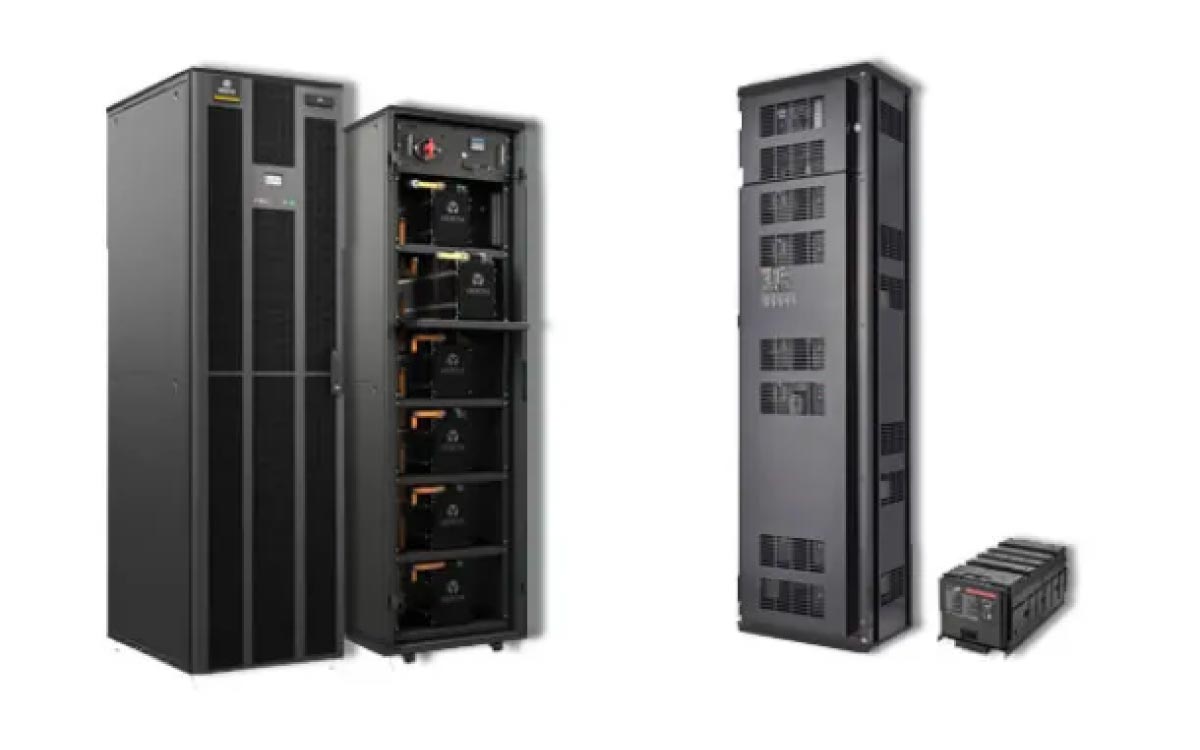Lithium-ion Batteries — Should You Make the Switch?

Vertiv lithium-ion battery cabinets (on the left) and Samsung Li-ion battery cabinet (right).
As an independent service provider, it’s our job to offer unbiased guidance when new technology emerges in the industry. This includes advances in battery technology. Right now, lithium-ion battery technology (or “Li-ion”) is slowly making its way into the mainstream. As these batteries come out of warranty, we are seeing more service requests and questions about purchasing new, as well as retrofitting older units with Li-ion battery technology. Our Field Service Engineers (FSEs) have undergone rigorous training on the Samsung and Vertiv (HPL) Li-ion battery cabinets, as well as additional models as they roll out.
We are ready and able to service the new technology, but what is our take on it? Should everyone make the switch? It depends. There are both multiple advantages and multiple disadvantages, and here are a few!
Advantages of Li-ion Battery Technology
Save some space. Lithium-ion batteries have a very high energy density, which means they can do the same work as a typical valve-regulated lead acid (VRLA) system while using 50%–80% less floor space. These batteries also weigh 60%–80% less, revolutionizing storage needs.
Lower your HVAC bills. Li-ion batteries are significantly more heat tolerant and able to maintain excellent performance at higher temperatures; this means a lower bill for cooling your space. However, this advantage can also be a disadvantage — operating your facility at higher temps means you need to evaluate (and possibly update) fire suppression systems.
Battery monitoring is included! New UPS-compatible Li-ion battery cabinets have the added advantage of being outfitted with a battery management system (BMS), which collects and reports all critical data about the battery system’s health and status.
Low maintenance. Lithium-ion batteries have very low maintenance requirements. There is no fluid level to measure and maintain, and the included BMS also helps reduce the need for maintenance.
Longer lifespan? Generally speaking, Li-ion batteries have a longer life: 8–10 years versus 3–5 years. However, there are some newer, high-capacity VRLA batteries that now have a 7- to 10-year span and also have a smaller overall footprint, cutting into the competitive advantages of Li-ion.
Some of the Drawbacks
Cost. The installation cost of a lithium-ion system is roughly 1.2 to 2 times more than what it would cost for a VRLA battery system at the same power level and run time. Included in cost of ownership is cost of disposal, which depends on the chemical makeup of the particular battery. Currently, recycling is not an option in most regions of the world for lithium-ion batteries used in UPS. Note: VRLA battery components are nearly 100% recyclable in most every model on the market — something to consider if recycling is a priority.
Another cost factor: Lithium-ion batteries are not compatible with most existing UPS systems and battery configurations. Switching to Li-ion technology typically requires a retrofit of the UPS (if compatible), an entirely new battery configuration, or a new UPS system.
A final cost factor is that fire suppression systems may need to be updated. Lithium-ion batteries have been known to be more volatile due to a much higher energy density, combined with greater sensitivity to being overcharged. They also are able to be run in a hotter environment, which can necessitate an update or careful evaluation of fire suppression systems.
So What’s the Bottom Line?
As with much of life we wish there was a simple answer, but getting to the right choice for your business requires some consideration. Clients’ power needs, current technology, environmental mission and overall goals have to be evaluated on a case-by-case basis when looking at the right battery plan. The cost of a Li-ion installation may be offset by the longer life cycle, but as we are seeing newer VRLA batteries are catching up with similar lifespan and a smaller footprint.
The good news is that because we are wholly independent DC Group can provide an objective and thorough evaluation to help you make the right decision for you. We treat our clients’ decisions as if they were our own, without any need to push certain manufacturers. Get in touch if you are considering making the switch to Li-ion technology.
